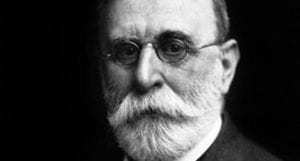Justin Taylor's Blog, page 27
February 7, 2019
Resolving the Biblical and Experiential Tensions of Christian Hedonism

In the foreword to Joe Rigney’s book, The Things of Earth: Treasuring God by Enjoying His Gifts, John Piper wrote:
If there is an evangelical Christian alive today who has thought and written more biblically, more deeply, more creatively, or more practically about the proper enjoyment of creation and culture, I don’t know who it is. When I say “biblically,” I mean that Joe thinks and writes under the authority of God’s Word and with a view to answering all serious objections that arise from the Bible. I also mean that he writes as a persuaded Christian Hedonist—that is, with the pervasive conviction that God is most glorified in us when we are most satisfied in him.
But like all good students, he is not merely swallowing the teachings of Christian Hedonism; he is digesting them so that they turn into energies and insights beyond his teacher’s. The fact that he asked me to write this foreword, and that I agreed to do it, is a sign that those insights are not contradictory, but complementary, to the teacher’s efforts.
Joe has discerned that a strength of Christian Hedonism can also turn into a weakness.
The strength is that Christian Hedonism, as I have tried to develop it, has a strong ascetic tendency (as the Bible does!). For example, I often add these words: “God is most glorified in us when we are most satisfied in him, especially in those times when we embrace suffering for his sake with joy.” Joy in affliction is a clearer witness that we treasure Christ more than comfort, than joy in comfortable, sunny days.
I also stress that it is more blessed to give than to receive and that giving is often painful. I have tried to make the tone of my ministry “sorrowful, yet always rejoicing” (2 Cor. 6:10). The very heart of Christian Hedonism, textually, is found in Philippians 1:19–23, where Christ is most magnified in our dying, because we treasure Christ so supremely that we call dying gain—because in it we get more of Christ. And we treasure Christ in our living by counting everything as loss because of the surpassing worth of knowing Christ Jesus our Lord (Phil. 3:8). The saltiness of the Christian life is tasted most keenly when, in the midst of being reviled and persecuted, we rejoice and are glad because our reward in heaven is great (Matt. 5:11–13).
The weakness of this emphasis is that little space is devoted to magnifying Christ in the right enjoyment of creation and culture. Little emphasis is given to Paul’s words: “God created [foods] to be received with thanksgiving by those who believe and know the truth. For everything created by God is good, and nothing is to be rejected if it is received with thanksgiving” (1 Tim. 4:3–4). Or his words that God “richly provides us with everything to enjoy” (1 Tim. 6:17).
The trees of biblical wisdom in regard to savoring God in the savoring of his creation are not full-grown in what I have written about Christian Hedonism. I sowed some seeds, but I never circled back to tend those saplings, let alone grow them into a book. That’s what Joe Rigney has done. And I am so pleased with what he has written that I feel no need to write that book. It needed to be written, and he has done it.
At the January 2019 Bethlehem Conference & Seminary conference for pastor and church leaders, the theme was Christian Hedonism, and Rigney was able to summarize and develop his perspective. I think the whole thing is worth listening to—either by audio or by the video above. His introduction—reproduced below—sets up the tensions he seeks to resolve.
Last night Pastor John asked a question:
How should we respond to the revelation of the all-surpassing glory and beauty of Christ?
And the answer is Christian Hedonism. We magnify Christ by pursuing our maximal happiness in him. God is most glorified in us when we are most satisfied in him. Christ is our exceeding joy, our gladness, our delight, our desire, our sweetness, our pleasure, our satisfaction. Christ himself. Not first his gifts, but himself.
I’ve heard John strike that note hundreds of times over the last 20 years. And like many of you, the message of Christian Hedonism has me to the core. I know it to be true. I can see it for myself in the Bible, plain as day. And in terms of my experience, Christian Hedonism solved the central problem of how the pursuit of God relates to the pursuit of happiness.
Experiential Tensions
But Christian Hedonism doesn’t just solve problems; it creates problems.
If I am to pursue my maximal joy in Christ above all earthly things, then how do I enjoy earthly things?
Should I enjoy earthly things?
In seeking to spread a passion for the supremacy of God in all things, what do I do with the tension that I feel between “the supremacy of God” and the “all things?”
Think about a biblical passage like Psalm 73:25-26:
Whom have I in heaven but you?
And on earth there is nothing I desire besides you.
My flesh and my heart may fail,
but God is the strength of my heart and my portion forever.
You go to church, and you say that and feel that and sing that, then you look down the row at your wife and kids, or look around at your friends, or remember that lunch is coming in about an hour, and think, “But I want them too. I desire them too.”
On the one hand we say, “I desire nothing but you, God,” and on the other hand, we say, “Except for all the other things I desire.”
And there’s the tension: how does a single-minded pursuit of the glory of God fit with a real and deep enjoyment of created things?
Get more concrete: how does the biblical truth that I am called to glorify God by supremely delighting in him relate to my enjoyment of Diet Dr. Pepper, bacon cheeseburgers, West Texas sunsets, marital love, the uncontrollable belly laughs of a seven year old, the thrill of intellectual discovery, and college football?
My guess is that many of you have asked that question and felt this tension too. You’ve felt a kind of low-grade guilt whenever you really enjoy an earthly pleasure.
Maybe you live with a perpetual sense that you’re not enjoying God “enough” (whatever that means) or that you’re enjoying his gifts “too much” (whatever that means).
Maybe you’ve begun to treat created things like hot potatoes, looking at your delight in physical affection and chocolate ice cream and a walk around the lake in early summer with a wary and skeptical eye, because you wonder whether it is too precious to you.
We have a sense that as we grow in holiness, as we become more like Jesus, that our enjoyment of fresh raspberries and lively conversation with friends and teaching Shakespeare ought to diminish, ought to grow dim, because we’re increasingly satisfied with God alone.
We know that God is infinitely valuable, that our family and friends and food are finite, and therefore, we feel that there ought to be a larger gap between our love for them and our love for him.
And so we can attempt to suppress our joy in created things so that they don’t compete and get in the way of our love for Christ.
Or, we attempt to suppress our grief when we lose gifts that are very dear to us, like a spouse, or a parent, or child.
That’s the experiential tension.
Biblical Tension
But this isn’t just a tension in our experience. It’s a tension that is rooted in the Scriptures. Think with me about the following Scripture passages.
But whatever gain I had, I counted as loss for the sake of Christ. Indeed, I count everything as loss because of the surpassing worth of knowing Christ Jesus my Lord. For his sake I have suffered the loss of all things and count them as excrement, in order that I may gain Christ… (Phil. 3:7-8)
If then you have been raised with Christ, seek the things that are above, where Christ is, seated at the right hand of God. Set your minds on things that are above, not on things that are on earth. (Col 3:1-2)
Whom have I in heaven but you, and on earth there is nothing I desire besides you. My flesh and my heart may fail, but God is the strength of my heart and my portion forever. (Psalm 73:25-26)
Everything is excrement compared to Christ. Don’t set your mind and your affections on things below. Desire nothing besides God. Now consider passages like this:
As for the rich in this present age, charge them not to be haughty, nor to set their hopes on the uncertainty of riches, but on God, who richly provides us with everything to enjoy. (1 Tim. 6:17)
For everything created by God is good, and nothing is to be rejected if it is received with thanksgiving. (1 Tim. 4:4)
Every good gift and every perfect gift is from above, coming down from the Father of lights with whom there is no variation or shadow due to change (James 1:17)
So which is it:
Only desire God? Or enjoy everything God richly provides?
Count everything as excrement? Or receive everything with thanksgiving?
Set your mind on things above? Or enjoy the good and perfect gifts that have come down from above?
This is not just a tension in your life; it’s a tension in the Bible.
Again, you can watch the whole message above—including a case study on loving baseball to the glory of God.
Here is the key to his answer in a nutshell:
The Bible gives us two complementary ways of approaching God and his gifts. The first is a comparative approach, in which God and his gifts are separated and set next to each other to determine which is more valuable. . . . The second I call the integrated approach, in which God and his gifts are enjoyed together, so that we don’t separate them or treat them as rivals.
February 6, 2019
The Hidden Floodlight Ministry of the Holy Spirit

J.I. Packer:
The Holy Spirit’s distinctive new covenant role . . . is to fulfill what we may call a floodlight ministry in relation to the Lord Jesus Christ. So far as this role was concerned, the Spirit “was not yet” (John 7:39, literal Greek) while Jesus was on earth; only when the Father had glorified him (see John 17:1, 5) could the Spirit’s work of making men aware of Jesus’ glory begin.
I remember walking to a church one winter evening to preach on the words “he shall glorify me,” seeing the building floodlit as I turned a corner, and realizing that this was exactly the illustration my message needed.
When floodlighting is well done, the floodlights are so placed that you do not see them; you are not in fact supposed to see where the light is coming from; what you are meant to see is just the building on which the floodlights are trained. The intended effect is to make it visible when otherwise it would not be seen for the darkness, and to maximize its dignity by throwing all its details into relief so that you see it properly. This perfectly illustrates the Spirit’s new covenant role. He is, so to speak, the hidden floodlight shining on the Savior.
Or think of it this way. It is as if the Spirit stands behind us, throwing light over our shoulder, on Jesus, who stands facing us.
The Spirit’s message is never,
“Look at me;
listen to me;
come to me;
get to know me,”
but always
“Look at him, and see his glory;
listen to him, and hear his word;
go to him, and have life;
get to know him, and taste his gift of joy and peace.”
—J. I. Packer, Keep in Step with the Spirit: Finding Fullness in Our Walk with God, 2nd ed. (Grand Rapids: Baker, 2005), p. 57; emphasis original.
February 5, 2019
The Weaker Sex?

Abigail Dodd, (A)Typical Women: Free, Whole, and Called in Christ (Crossway, 2019), 50–52:
A package came in the mail with the warning “Fragile: Handle with Care.” We fastidiously cut open the cardboard and were disappointed to find a few broken pieces inside. If only the fast-moving conveyor belts and jostling trucks could have read this helpful label. Then they’d have known to give it its proper consideration and value.
A glass chandelier is exquisite in its fragility. We could replace it with a wooden one, sturdy and functional, which would have a certain virtue to it but would lack all the things that make a chandelier what it is: the light that twinkles off the multifaceted glass, the gentle, high chinkling of pieces as they’re nudged, the suspended refinement that underscores a necessary sort of civilization. It would be a mistake to deem a chandelier worthless because it’s fragile. It misses the point.
Fragility isn’t a defect; it may be the defining worth of a thing. We see a similarity in women’s bodies. No, I’m not saying women are chandeliers. I’m not even saying they’re fragile. Have you seen a woman in labor? But they are physically weaker than men. How is it that God calls women to “do good and do not fear anything that is frightening” (1 Pet. 3:6) in one verse, and in the next verse refers to them as a “weaker vessel” (1 Pet. 3:7)? We don’t often put fearless and weaker together.
What results from being physically weaker than men?
Should we feel insulted because we acknowledge this biological fact?
Or could our very nature as weaker lead us to the source of our fearlessness, a powerlessness resulting in trust in the all-powerful Father?
It helps to first acknowledge that what God says through Peter is true. We are weaker than men. Not less intelligent. Not less human. Not incapable of reason or achievement. Not emotionally broken. Not more sinful. And not even without great strength, as the Scriptures testify. But, as relates to our physical bodies, comparatively weaker. And yet many of us are, or have been at some point, uncomfortable with this because it’s inimical to the spirit of the age, and it’s an offense to our pride—so much so that we might stubbornly spurn 1 Peter’s verity, even as we take every precaution when walking alone in a dark alley.
Our being physically weaker by comparison—the fact that no matter how much time I spend in the gym, I’ll likely never be able to overpower an average-sized man or beat him in an arm-wrestling match—is not a sign of something gone wrong. It is something to be handled with care, because in it resides exquisite beauties, abilities, and feminine strengths, like the beautiful strength of thick beveled glass.
A pregnant woman is one of the most defenseless humans on the face of the earth. She can barely rise to her feet after sinking into a comfy couch. Yet who but the weaker vessel, called woman, can grow another human inside her body?
Think of the massive strength and endurance it takes to give birth, yet it is simultaneously a vulnerable type of vigor. A woman in a marathon labor of countless hours afterward sits up in bed, even as her body begins to hemorrhage, trying to feed and care for another person. Why did God do it this way? So that we would know that, like a mother with her nursing babe, he never forgets us, even as the blood drained out of his own Son on our behalf. It’s a fragile, mind-bogglingly valiant design pointing to bigger things to be honored and protected—not belittled by comparison with a man, but accurately understood by it.
It is good that God made you weaker; he’s put a resplendent design in two Xs. In Lewis’s The Voyage of the Dawn Treader, young Eustace tells Ramandu, a former star, “In our world, a star is a huge ball of flaming gas.” But Ramandu replies, “Even in your world, my son, that is not what a star is, but only what it is made of.” We may be made of repeat chromosomes, but it amounts to so much more than the reductionism of what can be seen under a microscope.
February 4, 2019
A Jesus-Shaped Life Finished Well: Robert H. Mounce (1921–2019)

On January 24, 2019, Dr. Robert “Bob” Mounce passed away in Seattle, Washington, surrounded by his family. You can read his obituary and some reflections by his eldest son, Bill.
Dr. Mounce was president emeritus of Whitworth University, served as an important biblical commentator (especially on the book of Revelation in the NICNT series), and was a Bible translator (involved early on in the translation of the NIV and on the first translation committee of the ESV—where he served with Bill, author of the widely used Basics of Biblical Greek Grammar).
In 2011, filmmaker Shelby Mack captured a brief snapshot of Dr. Mounce as he cared for his beloved first wife, Jean, through her extended illness. At her death in 2012, they had been married for sixty years. The video above is a beautiful testimony to spending one’s final years poured out in Christ-centered love for another.
January 31, 2019
The Argument Against Abortion in 250 Words

Scott Klusendorf, president of Life Training Institute, author of The Case for Life: Equipping Christians to Engage the Culture and coauthor of Stand for Life: Answering the Call, Making the Case, Saving Lives, writes:
By all means, preach a biblical view of human value. But students in local churches also need to know how to make an essential pro-life argument and convey it to non-Christians. The basic shape of that argument looks like this:
Premise #1: It is wrong to intentionally kill innocent human beings.
Premise #2: Abortion intentionally kills innocent human beings.
Conclusion: Therefore, abortion is morally wrong.
Pro-life advocates defend that argument with science and philosophy.
We argue from science that the unborn are distinct, living, and whole human beings. You didn’t come from an embryo; you once were an embryo.
We argue from philosophy that there is no relevant difference between you the embryo and you the adult that justifies killing you at that earlier stage of development. Differences of size, level of development, environment, and degree of dependency are not good reasons for saying you could be killed then but not now.
Instead of arguing at a fever pitch, Christian students can be taught to ask thoughtful questions aimed at giving people something to think about. Two of my favorites are,
“Do you believe that each and every human being has an equal right to life, or do only some have it based on something none of us share equally?”
and,
“If it’s wrong to hurt people because of skin color or gender, why is it okay to hurt them because they are smaller, less developed, or in a different location?”
The goal of asking is not dominance but thoughtful engagement.
You can read the whole thing here, which reflects on how hard it is to get this message even into Christian schools and why the pro-life movement shouldn’t be guilted into diverting resources away from focusing on abortion.
January 29, 2019
‘PURITAN: All of Life to the Glory of God’—An Upcoming Documentary

In June 2019, Media Gratiae, Puritan Reformed Theological Seminary, and Reformation Heritage Books are coming together to produce a new feature-length documentary, PURITAN: All of Life to the Glory of God. It will be executively produced by Matthew Robinson, directed by Stephen McCaskell, written by Barry Cooper, animated graphics by Jorge Estrada, and a score composed by Jared Kraft.
There will be several discs produced:
The first will be a feature-length (120 minutes) documentary with contributions from theologians, pastors, and teachers from around the world.
The additional disc will contain 17 teaching sessions on different Puritan people and 17 on different Puritan themes (contributors: Chad Van Dixhoorn, William VanDoodewaard, Michael Haykin, Joe Rigney, Jason Meyer, Brian Cosby, Stephen Yuille, Derek Thomas, Mark Jones, Greg Salazar, James La Belle, David Murray, and Matthew Rowley).
There will also be a companion workbook, along with a brand-new book from Joel Beeke and Michael Reeves entitled Following God Fully: An Introduction to the Puritans.
You can watch the new extended trailer above.
For more information, see PuritanDocumentary.com.
January 28, 2019
A Note to the Discouraged: ‘We Are Very Apt to Have Wrong Thoughts of Christ’

English Puritan William Bridge (c. 1600–1670) ministers to us through his book A Lifting Up for the Downcast (Banner of Truth), 61–63:
Take heed and beware of discouragements, of being cast down; you have no reason for it, much reason against it.
Thereby you rejoice the heart of Satan. He claps his hands and laughs to see you cast down. Now, he now, says he, this man is like me; I am a despairing spirit, and so is he; I am discouraged and case down, and so is he. Satan stands triumphing over you, to see you under these discouragements. When you are sad, he is glad.
And as you rejoice the heart of Satan, so you grieve the heart of God. One friend is grieved at the grief, sorrow, and discouragement of another. The more real the friendship, the greater is the affliction and trouble of the one, if the other be grieved. Now just as God was the friend of Abraham, so it is with all believers. Christ is their friend. As God is the worst enemy, so He is the best friend, the truest friend, the most real friend in all the world. Therefore when you are cast down and discouraged, you grieve Him. . . . Is it nothing to grieve such a friend?
Thereby you do in some measure, yea, in a great measure, make void and frustrate the purpose of Christ’s coming, who came not only to free us from hell, but from our present fears. . . .
Some of you have been doubting, fearing, trembling, cast down, discouraged many years: and is it not time to bewail your unbelief and to honor free grace?
Be sure that you think of Christ in a right way and manner, as He suits with your condition, and as He is held forth in the gospel. We are very apt to have wrong thoughts of Christ. As Satan sometimes transforms himself into an angel of light, so he would transform Christ before you into an angel of darkness: but the Scriptures hold Christ forth in such terms as make Him very amiable unto poor sinners.
Are you accused by Satan, the world, or your own conscience?
Christ is called your Advocate.
Are you ignorant?
He is called the Prophet.
Are you guilty of sin?
He is called a Priest, and High Priest.
Are you afflicted with many enemies, inward and outward?
He is called a King, and King of kings.
Are you in straits?
He is called your way.
Are you hungry or thirsty?
He is called Bread and Water of Life.
Are you afraid you shall fall away, and be condemned at the last?
He is our second Adam, a public person, in whose death we died, and in whose satisfaction we satisfied justice.
There is no temptation or affliction, but some promise or other especially suits it.
HT: Dane Ortlund
January 25, 2019
B. B. Warfield’s Beautiful Description of the Self-Forgetful Christian Life

B. B. Warfield—the great theologian of Princeton Theological Seminary who lived from 1851 to 1921—once preached a sermon on Philippians 2:5–8. He entitled it “Imitating the Incarnation.”
David Powlison says that the ending of this sermon “offers the most riveting description of the goal of Christian living that I’ve ever read.”
Here it is:
[Christ] did not cultivate self, even His divine self: He took no account of self.
He was not led by His divine impulse out of the world, driven back into the recesses of His own soul to brood morbidly over His own needs, until to gain His own seemed worth all sacrifice to Him.
He was led by His love for others into the world, to forget Himself in the needs of others, to sacrifice self once for all upon the altar of sympathy.
Self-sacrifice brought Christ into the world. And self-sacrifice will lead us, His followers, not away from but into the midst of men.
Wherever men suffer, there will we be to comfort.
Wherever men strive, there will we be to help.
Wherever men fail, there will be we to uplift.
Wherever men succeed, there will we be to rejoice.
Self-sacrifice means not indifference to our times and our fellows: it means absorption in them.
It means forgetfulness of self in others.
It means entering into every man’s hopes and fears, longings and despairs: it means manysidedness of spirit, multiform activity, multiplicity of sympathies.
It means richness of development.
It means not that we should live one life, but a thousand lives,—binding ourselves to a thousand souls by the filaments of so loving a sympathy that their lives become ours.
It means that all the experiences of men shall smite our souls and shall beat and batter these stubborn hearts of ours into fitness for their heavenly home.
It is, after all, then, the path to the highest possible development, by which alone we can be made truly men. Not that we shall undertake it with this end in view. This were to dry up its springs at their source. We cannot be self-consciously self-forgetful, selfishly unselfish.
Only, when we humbly walk this path, seeking truly in it not our own things but those of others, we shall find the promise true, that he who loses his life shall find it.
Only, when, like Christ, and in loving obedience to His call and example, we take no account of ourselves, but freely give ourselves to others, we shall find, each in his measure, the saying true of himself also: “Wherefore also God hath highly exalted him.”
The path of self-sacrifice is the path to glory.
January 24, 2019
Everybody Knows What Is in the Womb

Professor Robert P. George of Princeton University:
We’ve known for a long time what a woman is carrying when she is pregnant—namely a child, her child.
We’ve known that it is not a rock or a potato or a frog, but rather a living member of the human species, the human family—one of us.
Many, of course, in an effort to validate and protect the abortion license, have pretended not to know; but it has been decades since it was possible actually not to know. To borrow a line from Leonard Cohen, “everybody knows.”
Honest defenders of abortion, such as Peter Singer and Michael Tooley, have long acknowledged the humanity of the child in the womb, but defended abortion—and, being logically consistent—infanticide on the ground that unborn and newborn babies, though human beings, are not (yet) “persons.”
Those of us on the pro-life side deny that there can be “human non-persons.” All human beings are persons, and as such deserve our love, care, and protection.
So our answer to the challenge of undesired or difficult pregnancies is “love them both.”
We do not see killing a human being—especially an innocent, defenseless human being (be it a child in the womb, a newborn baby, a cognitively disabled individual, or a frail elderly person)—as the answer to personal or social problems.
We differ among ourselves on many political and economic questions, including the proper roles (and mix) of government, civil society, and private charitable work in addressing these problems and providing necessary assistance. But most of us are not particularly dogmatic about those issues. We recognize that these are matters on which reasonable pro-life people may reasonably disagree.
What we agree on is this: We must always care; we may never kill.
Mother and child alike are precious members of the human family who must be respected, protected, and afforded the assistance and care they require.
These principles are exemplified by countless people who provide help to women and children both before and after the birth of the child in pro-life clinics and centers around the country. These are ordinary people—the majority are women—who volunteer their time and services, who are rarely given any public recognition or thanks, and who are sometimes subjected to harassment, abuse, and threats by abortion supporters and even malicious public officials. Yet they refuse to be intimidated or to abandon their baby-saving, woman-affirming work.
God bless them, and all who labor selflessly for others—especially the weak, the vulnerable, the poor, the persecuted. Kudos to all those who do not merely affirm but stand up and proclaim and defend the principle of the profound, inherent, and equal dignity of each and every member of the human family, beginning with the child in the womb.
January 2, 2019
What Facebook Knows about You

From Axios’s Ina Fried:
Assembling your profile: This is where your Facebook presence begins.
When you create an account, Facebook asks for your name and birthdate, along with either a phone number or e-mail.
Then there’s all the information you give Facebook as you fill out your profile, potentially including schools, current and past occupations, relationship status, hometown and current city, as well as your physical address, birth name, web site and other social links.
All of this forms the core of the profile Facebook uses to serve you ads. It’s why you see offers for clever T-shirts based on your college or job.
Following what you do on Facebook: The company has near-total awareness of every move you make on its website or in its apps, including:
When you log in, how long you spend online and where you are logging in from — hence it can welcome you to new cities and suggest places to visit and eat (and also serve up local ads).
Places you check in.
The pages, accounts, and hashtags you connect with on Facebook — and not just who you are connected with, but how often you interact and for how long.
Your contacts, if you choose to upload your phone book or call history.
Things you buy directly from or through Facebook, but also things you may not think about, like the metadata from photos you upload.
Your friends can tag you in posts and photos, which gives Facebook additional information. (You can choose to have this displayed publicly or not via privacy settings.)
Following what you say on Facebook Messenger: Facebook does scan your chat messages, but it isn’t exactly reading them— it runs an automated scan for child pornography and other banned content.
Messenger can collect information on who you talk to, how often and for how long, as well as phone history if users opt in. But the company says it isn’t serving ads based on the content of users’ messages.
It also has an option for users to encrypt their messages, but this is turned off by default.
Following you outside Facebook: Facebook sees you less thoroughly outside its own digital turf, but it still sees a lot. This data comes from two places: partner services and third-party information brokers.
Facebook has tools that partner websites use to integrate with Facebook, including the inclusion of “Like” and “Share” buttons, as well as a tracking cookie known as Facebook Pixel.
Thanks to an inquiry from Britain’s Parliament, we have a sense of how prevalent these methods are. According to Facebook, between April 9 and April 16 of 2018 there were 2.2 million Facebook Pixels, 8.4 million pages with a Like button and 931,000 pages with a button to Share on Facebook.
Facebook knows your location, even if you haven’t directly given it permission to access your phone’s GPS, by tracking the IP address of the phones, computers and other devices you use to access its servers.
Facebook also reserves the right to enhance its data trove by adding information from outside providers, though it has ended one program that mixed Facebook and third-party data for advertisers. From its policy page: “We also receive information about your online and offline actions and purchases from third-party data providers who have the rights to provide us with your information. “
Following you across your apps: Many apps are connected to Facebook, including through its popular Facebook Login feature, which uses your Facebook account as a shortcut for you to sign in.
Developers can also use this system to get your permission to access Facebook data. In addition to iOS and Android, it also works across the web and on some smart TVs.
Integrating Facebook was once a way for outside apps to get a lot of info about you, but Facebook has tightened that up considerably, setting rules and instituting a review process for apps that want anything beyond basic identity information.
Following you at home and around town: Facebook’s new Portal video chat system is basically a camera that lives in your home.
Facebook promises the device doesn’t monitor or record conversations.
However, because it uses Messenger, Facebook says it does know who you call and how long the calls last.
Facebook doesn’t know everything you do offline, but it does have some data from retail point-of-sale locations as well as Bluetooth beacons.
Read the whole thing here.
Justin Taylor's Blog
- Justin Taylor's profile
- 44 followers



